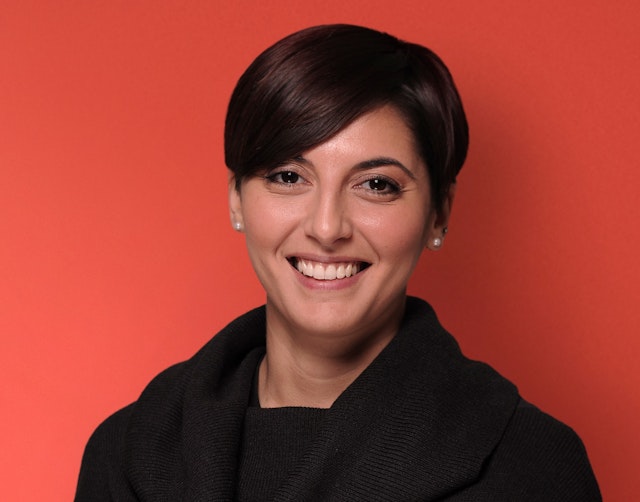Brands risk sustainability saturation – how can they make more meaningful messaging?
Market saturation and messaging fatigue are seeing some brands fail in the sustainable segment. How can they achieve better cut-through?

Brands risk saturation with lightweight sustainability messages. How can agencies improve matters? / Unsplash
Impacted by consumer caution and market saturation, big-name brands such as Oatly and Nestle have scrapped some of their more eco-minded product lines lately.
If businesses and brands are to transition to a more sustainable, responsible way of generating turnover, they need these products to succeed. But agencies tasked with helping them do that are faced with a pincer movement: a cost of living crisis on the one side, and a public exhaustion of hearing about the climate emergency on the other.
We asked 10 network agency leaders how they’d find a way through.
Advertisement
How do you solve a problem like... marketing sustainable products to bored consumers?
Maddie McDowell, creative director, 72andSunny: “Sustainability marketing is awash with generic platitudes and dry facts. It’s crucial to find an approach that clicks into strong emotion. Capturing people’s attention is the first step to getting people to care – cutting through the forest of green advertising requires an unexpected delivery. When United Airlines wanted to spread the word about its investments in Sustainable Aviation Fuel made from things like waste, we enlisted the help of a beloved character with a whole lot of trash expertise: Oscar the Grouch. It was a collaboration that no one saw coming…but made perfect sense. And proved incredibly effective.”
Grant Hunter, global executive creative director, Iris: “Plant-based doesn't necessarily mean paying lots more if you get your pricing strategy right, and I'm not convinced all brands are pulling back from plant-based alternatives. Straits Research reports that the vegan UK market is growing at a rate of 9.58% with 40% of UK folk stating they want plant-based alternatives, so there is still demand. Take Greggs as a key example: it’s posting quarter-on-quarter growth. Its seasonal plant-based alternatives performed well in Q4 and it expanded its whole range for Veganuary 2023 adding a quartet of products to its line-up. Greggs are in that sweet spot of offering good value with products that are catering for people’s changing tastes.”
Advertisement
Ahmed Elshinnawy, sustainability, climate and equity leader at Deloitte Digital: “Considering economic challenges and consumer spending concerns, redefining sustainable and profitable business practices is important. To succeed in connecting and building meaningful relationships with customers through sustainable offerings, you now must blend digital technology, strategy, and creativity, tackle pressing challenges and support clients, all while fulfilling those sustainability commitments. For instance, at Deloitte Digital, we collaborated with a consumer electronics company that involved transforming their responsible packaging program. Using this recipe, our creative team devised a user-friendly experience by digitizing product content through QR codes, eliminating the need for print paper inserts and preserving trees. It takes creative problem-solving.”

Dan Tendler, strategy director at Wunderman Thompson UK: “As demand for ‘alternative’ products soared, as did the number of available brands to answer that need. But to move the dial when it comes to any sort of positive future, it’s not about selling sustainable products to ‘sustainable’ consumers. As an industry, we need to convince the masses to make positive behavior changes. One example could be selling more ‘sustainable’ versions of a product. Or equally meeting people where they are at and enabling them to (potentially controversially) buy less of the product, change how they dispose of it, or push for them to use it for longer.”
Monica Del Rio, brand strategy director, Virtue Worldwide: “Dial down the virtue signaling and surpass the dupe mindset. At a time when sustainability is increasingly less of an advantage and more of a basic requirement, consumers favor engaging stories over moral superiority. Take heavy-metal canned-water brand Liquid Death. Its not a more conscious version of bottled water– it is its own thing. It has ditched category tropes and declared war on plastics on its own terms. Humor and not morality is their weapon of choice. What could’ve been just another sustainable brand, instead has transcended into a cult brand. Sustainability is not a box-checking exercise but an invitation for reinvention.”
Suggested newsletters for you
Inga Howell, group marketing director, Design Bridge and Partners: “Design plays a critical role in encouraging consumers and businesses to take up the ecological solutions developed by world-leading visionaries and businesses. Especially where the product costs more, design can influence decisions. In our work for Notpla, a revolutionary seaweed-based packaging material developed as an alternative to plastic, the mission of ‘making packaging disappear’ is ubiquitous. This clearly defined mission, emphasized by its name – essentially, ‘not plastic’, reinforces to businesses and consumers that they are making a planet-positive choice. The potential of this solution is clear – explaining why Just Eat commissioned over 2m Notpla takeaway boxes.”
Jeff Bowerman, executive creative director, Dept UK: “Relying on just sustainability as the hook for consumers was always going to be short-lived. As more products come onto the market, and we see the squeeze on consumers’ wallets, this alone can’t be the only reason to buy. It makes sense to treat marketing these products in the same way we would treat any product marketing; find something distinctive and persuade audiences with something memorable – it could be humor or extreme honesty, borrow the loud imagery from less sustainable alternatives or do something completely left field for the category like Liquid Death has done for bottled water.”

Michela Graci, strategy partner, Coley Porter Bell: “A product’s positive environmental impact should be highlighted as much as the individual health benefits so consumers can better understand how it differs from others. Brands should be using packaging as a physical medium and a storytelling canvas to provide a reminder of their sustainable commitments and product differentiation, leading to increased customer retention.
“Brands should always keep innovating. Boredom sets in when customers see the same things again and again. Trying something new within the limits of your sustainable guidelines – while maintaining the authenticity of your brand – will continue catching the interest of your audience.”
Marcos Angelides, chief strategy officer at Spark Foundry: “With well over 140m relevant category searches in Q1 2023, sustainable fashion is well worth our attention. Spark Foundry research shows that of those millions of searches, most represent people exploring product types and specific brands. 35% of searches come from people looking at certain products, whilst 55% represent people delving into specific brands. When it comes to food, most searches were driven by people seeking ‘plant-based’ alternatives (59%). So, it’s clear that people want sustainable food options but don’t know who to go to; that’s a huge opportunity for brands and a clear justification for increasing their comms.
“Whether your brand has sustainability at its core or not, there is merit in bringing sustainable features to the fore in communications – that could be references to local production, organic materials, or simply quality that counters fast fashion.”
Alex Paine, partner of brand strategy at Lippincott: “Make sustainability the validation, not the proposition. Sustainability is almost never the reason people buy a product, but it can be the reason they feel proud to have bought it… and tell their friends. The first rule of selling a sustainable product is to stop trying to sell a sustainable product. Sell the product and use your customers to sell the sustainability.”
Got two cents of your own? Get in touch (sam.bradley@thedrum.com) and I’ll let you know what next week’s prompt is.

